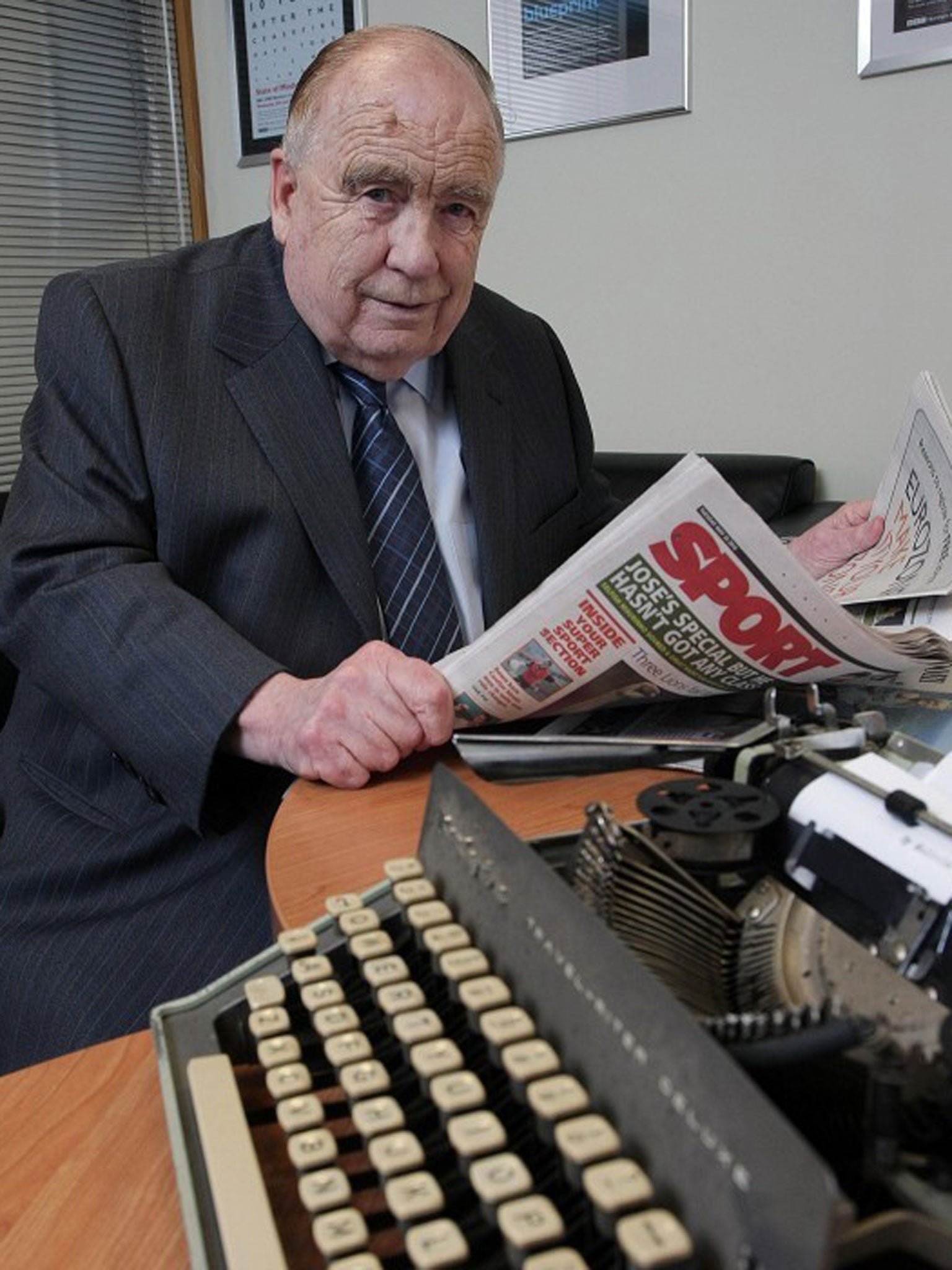Your support helps us to tell the story
From reproductive rights to climate change to Big Tech, The Independent is on the ground when the story is developing. Whether it's investigating the financials of Elon Musk's pro-Trump PAC or producing our latest documentary, 'The A Word', which shines a light on the American women fighting for reproductive rights, we know how important it is to parse out the facts from the messaging.
At such a critical moment in US history, we need reporters on the ground. Your donation allows us to keep sending journalists to speak to both sides of the story.
The Independent is trusted by Americans across the entire political spectrum. And unlike many other quality news outlets, we choose not to lock Americans out of our reporting and analysis with paywalls. We believe quality journalism should be available to everyone, paid for by those who can afford it.
Your support makes all the difference.Northern Ireland had just beaten the host nation, Spain, in the 1982 World Cup finals. Present in his dual role as sports editor and chief football writer for the Belfast Telegraph, Malcolm Brodie penned a stirring eulogy to Pat Jennings, Gerry Armstrong, Martin O'Neill et al. After phoning a copytaker, who would type his report, he began to dictate: “Magnifico, magnifico, magnifico.” Back came the copytaker. “Yes, OK, Malky, I heard you the first time.”
The story undoubtedly had apocryphal elements; in some tellings the “intro” started with “Olé, olé, olé”, while occasionally it became about filing his piece from the iconic 1970 final between Brazil and Italy in Mexico City rather than about the match in Valencia 12 years later. A little poetic licence, or blurring of lines, was forgivable. Brodie covered 14 World Cups, more than any other journalist on the planet, and, as he was fond of pointing out, it would have been 15 but for his honeymoon.
His unique record led to Fifa, the governing body of the global game, presenting him with a replica of the Jules Rimet Trophy, the original World Cup. It also brought him a certain celebrity status. Brodie could hardly walk through a press centre at a major tournament without a reporter from the Far East or Africa thrusting a microphone in front of him.
At his first World Cup, in Switzerland in 1954, he was at the eye of the storm as the quarter-final between Hungary and Brazil erupted into vicious fighting on the pitch and in the dressing-rooms. It became known as “The Battle of Berne”, and afterwards Brodie was in the corridor, trademark notepad and pencil in hand, recording a “small war” as the English referee, Arthur Ellis, fought his way to safety. Far from being daunted, he was smitten, and Northern Ireland's presence in the 1958 finals made the Swedish World Cup a more pleasurable experience, as it would again in 1982 and '86.
Although he became part of the fabric of life in Ulster, also writing a number of books and editing Ireland's Saturday Night (a sports newspaper, aka “The Pink”), Brodie was a Scot. Born in Glasgow when Clydeside was in the grip of unemployment, poverty and hunger, he grew up supporting Rangers. But in 1939 he was evacuated to Portadown, Co Armagh, his parents believing he would be safer there after the Second World War broke out. He later said he “fell in love with Northern Ireland... Even as a boy, I knew I wouldn't go back”.
A stint as a cub reporter with the Portadown News whetted his appetite for a career in the press, and in 1943 he was taken on by the Belfast Telegraph after answering an advert for copytakers. Having put a foot in the door, he soon pushed it open, graduating to the role of news reporter, covering the courts and council meetings, before joining the political staff and reporting from the seat of government at Stormont. In 1944 he interviewed the ill-fated bandleader Glenn Miller (Brodie's own musical hero was Frank Sinatra) and in 1953 he led the paper's coverage of the sinking of the Princess Victoria with the loss of 133 lives in the North Sea.
Brodie's passion, however, was sport – he also enjoyed boxing and cricket (particularly the great West Indies sides) – and, ridiculous as it sounds now, the “Tele” did not have a sports department. His offer to establish one was accepted, and for five decades his imprint was on its pages. He made it his business to get to know sports people, his contacts book brimming with numbers for everyone from George Best, Mary Peters and Barry McGuigan to the humblest Irish League club secretary.
His knowledge of his adopted country's national team was encyclopaedic. Between 1946 and 2009 he saw every Northern Ireland match, home and away, notwithstanding the fact that he had officially retired in 1991, after which he wrote a history of the paper that remained “in my heart”, as well as continuing to contribute obituaries and a sports-nostalgia column to it.
In an interview for the Football Writers' Association website last year, Brodie's advice for aspiring football writers confirmed him as a strong character, companionable to the last glass of Johnnie Walker Black whisky but not in thrall to any pack mentality. “Stand by your own judgement,” he counselled, “and discard the quotes scenario unless it benefits your story.” His services to journalism were recognised with an MBE and an honorary doctorate from the University of Ulster.
The Irish FA is to discuss a proposal to name the press facilities after Brodie when Windsor Park is rebuilt and also plans an “appropriate tribute” when Russia visit Belfast for a World Cup qualifier next month.
Dr Malcolm Brodie, sports journalist and author: born Glasgow 27 September 1926; MBE; married Margaret (three sons); died Belfast 29 January 2013.

Join our commenting forum
Join thought-provoking conversations, follow other Independent readers and see their replies
Comments